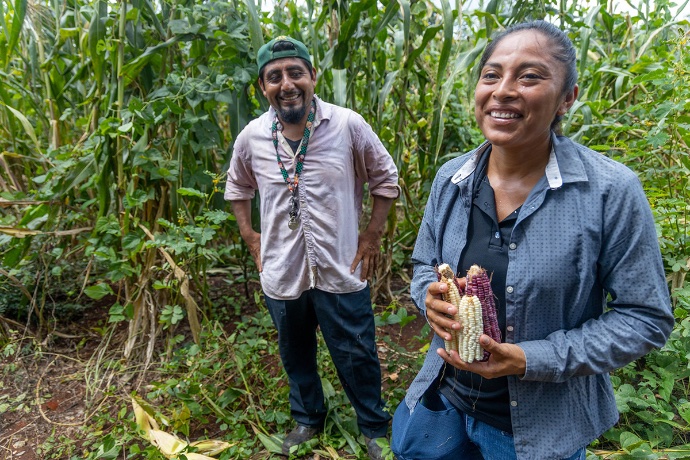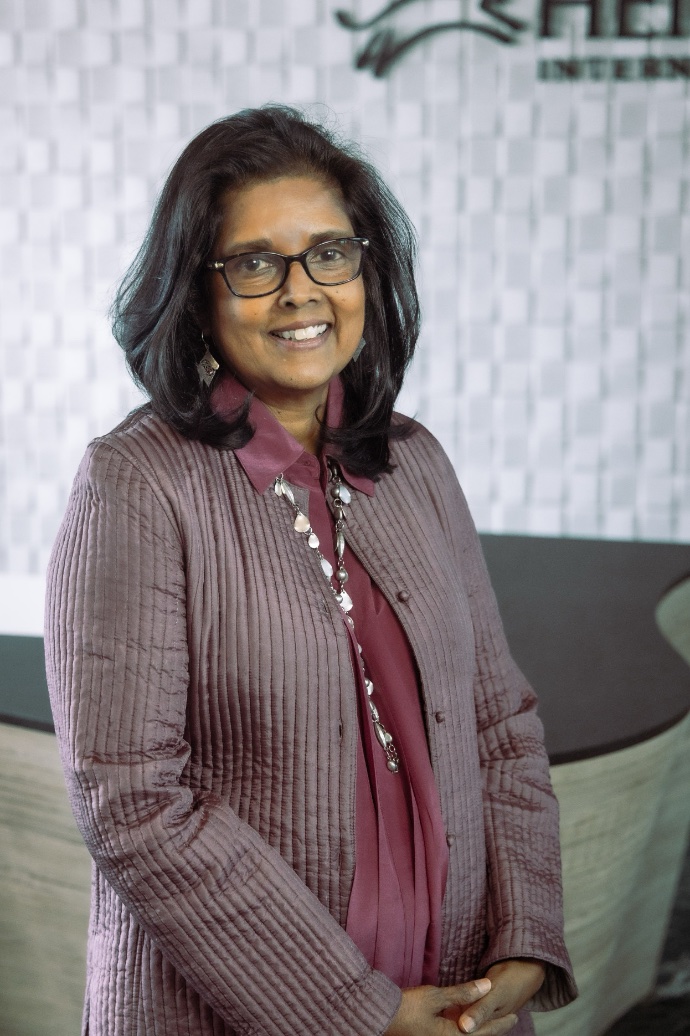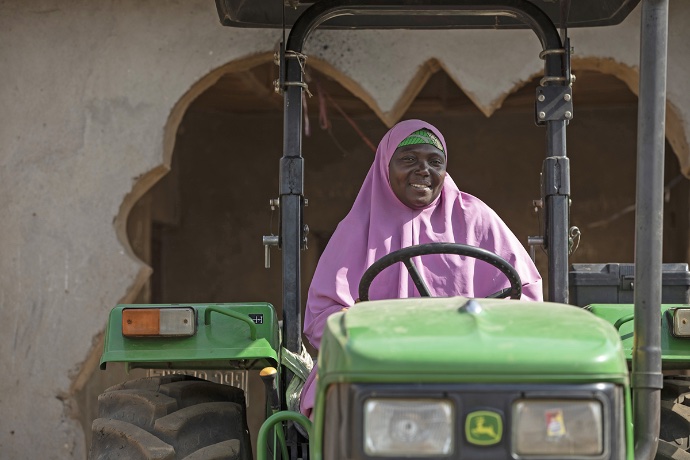By Surita Sandosham, President and CEO, Heifer International

Yazmin Judit Hau Tun, right, holds ears of corn harvested from her milpa, a traditional Indigenous farming system that sustains families and local food production. Photo by Phillip Davis/Heifer International.
I am writing this in the lead-up to International Women’s Day on March 8 — an occasion each year when we recognize the need to ensure that women everywhere have equal opportunities to learn, grow, work, innovate, speak up and lead.
It’s wonderful to have this day every year dedicated to such worthy goals. But let’s be frank: Uplifting women should be an everyday, year-round endeavor.
It is for Heifer International. Supporting the full economic engagement of rural women is central to how we help smallholder farming communities build sustainable, profitable agricultural businesses and participate actively in food systems.
This work is an investment in a more resilient world.

Surita Sandosham, President and CEO Heifer International
Recent research has shown that, when women in low- and middle-income countries have greater opportunities to participate in business and the labor force, it leads to increases in household income and spending, particularly on essentials like education and health care that can improve prospects for their children. It also leads to more savings and increased household assets.
Those of us who operate in international development see these results every day: Working women directly support healthier, more resilient families and communities. But the world has much to benefit, too.
Helping women farmers become more productive and closing wage disparity across food systems, alone, would reduce food insecurity for an estimated 45 million people and add nearly $1 trillion to global gross domestic product.
This is an economic engine with enormous potential. Enhanced market activity by women translates into more job creation; more investment in innovative farming practices that conserve resources and care for the environment; stronger, more reliable local food systems; and more stable rural communities, where circumstances are ripe for everyone to earn an income and build a dignified life.
Consider our Milpa for Life project in Mexico. It helps smallholder farmers, especially women, diversify their production with complimentary income-generating products, such as chickens, and integrate regenerative agriculture approaches that foster healthy ecosystems. As of October 2024, farmers connected to the project have collectively sold nearly $100,000 in sustainably raised eggs and produced an additional $12,000 for household consumption.
The economic benefits of working with women show themselves in ways like this in all 19 countries where Heifer International has a presence.
For example, in Nigeria, women tractor owners are foundational to a burgeoning tractor-rental economy that has exponentially increased job opportunities, crop production and profits, with women farmers experiencing a stunning 380 percent growth in income. In Honduras, a visionary female manager for a dairy processing plant has set the stage for an expansion that could secure incomes, employment and access to nutritious milk across the country. And in Nepal, a nationwide network of 217 progressive women-led cooperatives has leveraged our partnership to strengthen agriculture enterprises, improve market access and generate $116,000 in revenue last year alone.

Hauwa Adamu Tamuzu utilizes the tractor she obtained to increase farm production through a pay-as-you-go model of Heifer International and Hello Tractor’s Tractors 4 Africa project in Awe, Nigeria. Photo by Fati Abubakar/Heifer International.
Globally, Heifer-supported business entities, many of them operated by women, sold $46 million in farm-based goods last year — earnings to drive development and resilience.
If money talks, it’s telling us this: Women’s role and their potential in development is undeniable. So, while global conversations may change — and challenges abound — our focus need not waver. We continue to support farming women, their families and their communities, no matter what’s going on in the world. It’s just good business.